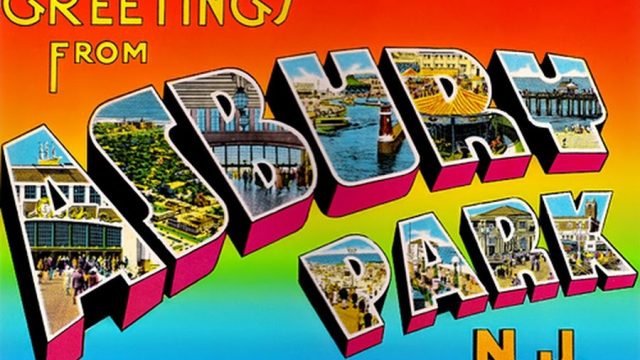Every artist has to start somewhere. Bruce Springsteen didn’t start with Greetings From Asbury Park, N.J. By the time he arrived at his 1972 debut album, Springsteen had kicked around in a number of different bands, including The Castiles, one of the at least half a dozen bands named Earth, and a few looser collectives that included several future members of the E Street Band. He’d toured nationally. He’d been a studio musician on studio recordings. He’d even already acquired his nickname “The Boss” (which Wikipedia helpfully notes he isn’t fond of “due to his dislike of bosses”). In 1972, Bruce was practically an industry veteran, at least as far as the live scene goes, which is perhaps why Asbury Park is such an astoundingly confident, well-formed debut.
Springsteen stands alongside David Bowie and possibly Roger Waters as central figures in that vital third generation of rockers, the first crop of artists who had grown up not just listening to the OG rock n’ rollers of Chuck Berry and Robert Johnson but also to the white generation that fashioned themselves as middle-class tributes and innovators of that original rock sound: The Beatles, The Stones, Dylan, etc. So the rock music coming out of the new artists of the early ’70s was even further removed from the blues and, by virtue of the eclectic tastes of the performers, was always tending toward fusion. While Bowie (an early admirer of Springsteen, for the record) fused The Beatles with cabaret and fussy philosophy, Springsteen creates an amalgam of Dylan’s digressive, talky folk with pop-rock and a loose, fluid sensibility to song structure that he undoubtedly took from his years as a live performer, resulting in a sound that feels imbued with not just folk and British Invasion but also the spirit of, of all things, jazz. Springsteen’s sputtering mouthfuls of lyrics are delivered with a half-improvised excitement, as if he’s overflowing with so many ideas that he can barely cram them all into the spaces provided by the music.
There are a few notable exceptions: “Spirit in the Night,” the album’s second single, parcels out its lyrics much more methodically, and “Mary Queen of Arkansas” has an ebb and flow cadence to it that surely was responsible for at least half of the “Dylanesque” labels The Boss got in his early years. But taken as a whole, the general impression left by these songs is one of trying to drink from a full-throttle fire hose of off-the-cuff musicianship and personality. And it’s kind of thrilling. Under the care of a lesser artist, these songs may have fallen apart into incomprehensible mush, but under Springsteen and his experienced charisma, it’s a rousing, ballsy success.
The funny thing is that it’s a little hard to hear that ballsiness. Longtime Springsteen listeners, or even just people familiar with the Boss’s more ubiquitous later hits, will find it easy to listen to Asbury Park and focus on how it presents the Springsteen sound only embryonically. There are few saxophones, no E Street Band; the production is relatively thin; his teenaged romanticism had not yet flowered into populism; his lyrics feel by turns naive and maudlin, not yet honed into the clear-eyed pathos and knowing world-weariness that cuts so deep in his later work. If you’re coming to Asbury Park as a traveler from Born to Run or Darkness at the Edge of Town (much less Born in the USA or, hell, The Rising), there’s the tiniest bit of culture shock.
And that’s fair. To be honest, this album is a little much to take at times. Springsteen’s enthusiasm and gushing lyrics are invigorating, but there are also SO. MANY. LYRICS. crammed into relatively small spaces that it feels like coming up for air to move forward in his career toward his more pruned work.
But I did call the album a success, and I mean it. For as much as there’s possibly a bursting-at-the-seams issue here, that same characteristic is as much a feature as it is a bug. Springsteen’s songwriting is as infectious as it is overflowing, and oftentimes (e.g. the opening 1-2 punch of “Blinded by the Light” and “Growing Up”), it’s that very overflowingness that makes it so infectious. Bruce Springsteen would go to very different, more refined places in the years to come, but his debut is every bit of something a longtime player like himself could be proud of.

